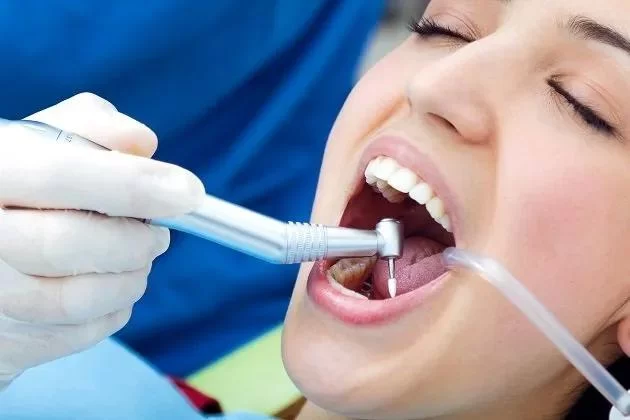
- Understanding the Importance of Caring for Dental Crowns
- Daily Care Routines for Crowns After Root Canal Treatment
- Avoiding Damaging Habits and Foods
- Recognizing Warning Signs for Dental Crowns
- Professional Dental Care and Regular Checkups
- Real-life Experience and Expert Advice
1. Understanding the Importance of Caring for Dental Crowns
Dental crowns placed after root canal treatment play a critical role in restoring the tooth’s strength, function, and appearance. Since root canal therapy removes the tooth’s nerve, the affected tooth can become more brittle and susceptible to fractures. A crown acts as a protective cap, shielding the tooth from further damage and decay.
Proper care for dental crowns after root canal treatment is essential not only for preserving the crown itself but also for maintaining the health of the underlying tooth and surrounding gums. Neglecting crown care can lead to complications such as crown loosening, decay under the crown, or gum disease.
Many patients underestimate this stage of treatment, but with informed care practices, the longevity of dental crowns can be significantly extended. If you want reliable recommendations for care products and professional services, Dentistry Toothtruth offers resources tailored to maintaining your dental crowns effectively.
1.1 How Root Canal Treatment Affects Tooth Integrity
The removal of infected tissue during root canal treatment leaves the tooth hollowed and structurally compromised. This makes a properly fitted crown essential, and taking care of that crown is just as important to prevent fractures and reinfections.
2. Daily Care Routines for Crowns After Root Canal Treatment
Caring for dental crowns requires specific daily routines designed to protect the restoration and the tooth underneath.
2.1 Gentle and Thorough Brushing
Using a soft-bristled toothbrush and non-abrasive fluoride toothpaste, brush your teeth twice daily. Pay special attention to the area around the crown margin, where plaque tends to accumulate. Aggressive brushing can damage the crown or irritate gums, so balance is key.
2.2 Flossing Around Crowns
Careful flossing is crucial to prevent decay and gum disease around the crown. Use a floss threader or special floss designed for dental work to clean beneath the crown edges without dislodging it.
2.3 Rinsing and Additional Tools
Rinsing with an antiseptic mouthwash can help reduce bacterial buildup. Water flossers can be particularly helpful for reaching tricky spots without damaging the crown.
3. Avoiding Damaging Habits and Foods
Protecting your dental crowns means avoiding behaviors and foods that can compromise their integrity.
3.1 Avoid Hard and Sticky Foods
Chewing ice, hard nuts, or sticky candies can loosen or crack crowns. Patients with crowns should be mindful and choose softer foods when possible.
3.2 Refrain from Teeth Grinding
Bruxism (teeth grinding) is a common cause of crown damage. If you grind your teeth at night, consider getting a custom night guard to protect your crowns and natural teeth.
3.3 Tobacco and Staining Substances
Tobacco use and frequent consumption of staining beverages like coffee or red wine can discolor crowns, especially those made from porcelain. Reducing or avoiding these substances helps maintain the crown’s appearance.
4. Recognizing Warning Signs for Dental Crowns
Early detection of problems with dental crowns can prevent costly repairs and preserve your oral health.
4.1 Sensitivity or Pain Around the Crown
Persistent sensitivity or pain may indicate decay beneath the crown, gum infection, or crown loosening.
4.2 Visible Damage or Changes in Fit
Cracks, chips, or looseness are clear signs that your crown needs professional evaluation. Even slight movement can allow bacteria to enter.
4.3 Gum Inflammation and Bad Breath
Swelling, redness, or persistent bad breath can signal gum disease around the crown margin, which requires prompt attention.
5. Professional Dental Care and Regular Checkups
Regular visits to your dentist are a critical part of caring for dental crowns after root canal treatment. Professional checkups allow early detection and treatment of problems.
5.1 Scheduled Examinations
Dental professionals can check the crown’s condition and fit, assess the health of underlying tooth structure, and clean areas unreachable by daily care.
5.2 Maintenance Procedures
Sometimes crowns need adjustment, replacement, or polishing. Timely maintenance can prevent more serious issues.
5.3 When Crowns Need Replacement
Despite the best care, crowns do not last forever. Depending on materials and care, crowns can last 5-15 years. Your dentist will guide you on the best time for replacement.
6. Real-life Experience and Expert Advice
Mark’s story illustrates the importance of post-treatment care. After root canal therapy, Mark received a crown but initially neglected proper maintenance. He experienced crown loosening and sensitivity within two years. After consulting his dentist and adopting better care routines, including switching to a softer diet and using a night guard for bruxism, Mark successfully extended the crown’s lifespan significantly.
This example highlights how personalized care and professional support make a real difference. If you are seeking expert advice and suitable products to care for your dental crowns, Dentistry Toothtruth provides trusted recommendations that can help you maintain your oral health confidently.







 AV Dental Associates of Ramsey LLC5.0 (57 review)
AV Dental Associates of Ramsey LLC5.0 (57 review) Skyway Dental of St Paul4.0 (97 review)
Skyway Dental of St Paul4.0 (97 review) Longwood Dental Group4.0 (544 review)
Longwood Dental Group4.0 (544 review) Arpino Orthodontics5.0 (133 review)
Arpino Orthodontics5.0 (133 review) David J Wiseman, DDS4.0 (11 review)
David J Wiseman, DDS4.0 (11 review) Collegeville Dental Center4.0 (15 review)
Collegeville Dental Center4.0 (15 review) The Importance of Oral Health Education During Pregnancy for a Healthy Pregnancy
The Importance of Oral Health Education During Pregnancy for a Healthy Pregnancy Best Tips for Brushing Your Teeth Properly for Healthy Gums: Essential Techniques for Oral Health
Best Tips for Brushing Your Teeth Properly for Healthy Gums: Essential Techniques for Oral Health Why Skipping Dental Checkups Can Lead to Bigger Oral Health Problems
Why Skipping Dental Checkups Can Lead to Bigger Oral Health Problems Advantages of Porcelain Dental Restorations
Advantages of Porcelain Dental Restorations How Can Diabetes Cause Tooth and Gum Problems? Preventing and Managing Oral Health Issues
How Can Diabetes Cause Tooth and Gum Problems? Preventing and Managing Oral Health Issues Healthy Habits for Promoting Good Oral Health and Hygiene: Tips for a Healthy Smile
Healthy Habits for Promoting Good Oral Health and Hygiene: Tips for a Healthy Smile